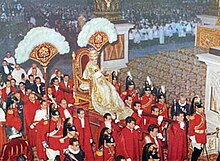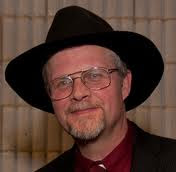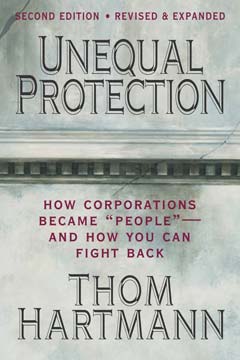In a blog at the Orthodox-Reformed Bridge, Crossing The Bosphorus Perry Robinson has accused Bayou Huguenot (AKA Outlaw Covenanter),
“But for some strange reason you’ve seemingly had sufficient time to post these and other arguments both here and elsewhere cobbled together from Drake for the better part of a year… I have no doubt that you’ll happily post them on your blog so others who are banned from this and just about every other forum of any theological stripe [He is talking about me.-DS] can misconstrue them and heep all kinds of foul words upon them. Th [a]t says nothing about me though or what I’ve written.”
>>>OC said,
“BUT
~c. Simplicity applies to the essence.
THEREFORE
d. God’s energies is his essence!…
To put it in layman’s terms: If God is beyond being–including essence, persons, and energies–then how can you know him?”
I have never made this argument. Ever. I am not sure where he got this idea.
OC said,
“I didn’t ask whether God had creative energies. I asked whether, given what we all believe about Chalcedonian Christology, how we can speak of a plurality of “energies” in the Godhead since the divine nature, strictly speaking, has one energy.”
Now this is a very good argument and one that I didn’t think of. He thought this one up all on his own.
Perry replied,
“If the energies in Basil and company are not substantially the same as what palamas has in mind, then we are owed an explanation of what the Cappadocians meant.”
>>>I don’t affirm that they are different. I admit it is the same construction. Jacob did you say that they were different?
Perry says,
“There is no “strictly speaking” with respect to the one energy of God. And that is because the authors who speak of there being one energy speak of it in a non-strict sense, namely that there is only one power and one united activity.”
>>>Even if he makes this argument he would have to back off of his criticism of Calvinism because those criticisms assume that there is only one active will in Christ with reference to cardinal numbers (genus of being) in the supposed heretical Calvinist view. If the Calvinist could respond that there is only one in the sense of an inseparable union (genus of relation) of the wills-one active one passive, the Anti-Monergism accusation falls.
Perry says,
“The ones relative to creation then would be the only ones that would have a begining. This would only imply a change in God if we took the energies to be substantial constituents, but Palamas explicitly denies that they are such, that is, they are neither accidents nor substances.”
>>>This is very troubling and very unconvincing. God’s nature now is not a substantial constituent? Wow.
Perry says,
“Nature is generally a cover all term for essence and energy”
>>>Yet in an email he sent me Perry said,
“To say that the uncreated energies or light is outside God is only true with respect to the essence and then it is not strictly speaking true since “outside” is a spatial designator and they aren’t spatially outside God. It only means that they are not the essence. It doesn’t mean they are not God. We just gloss nature as wider than essence.”
>>>>Here we have Perry contradicting himself. Above nature can mean essence AND energy, but in his email energies are the nature broader than the essence. Either essence and nature are distinct or there is no essence and energies distinction.
Perry says again,
“There is one energy in the sense that they are united.”
>>>This is a conflation between the genus of being and the genus of relation. It is a conflation of a cardinal singularity with a union between two cardinal singularities. One pertains to being, the other to relation.
Perry says,
“Why think that all of the energies are related to the economia? Who says that?”
>>>This is another HUGE disappointment. This is elementary. In EO Theology the energies pertain to how God relates ad extra. Bradshaw states,
“Somehow by energeia Gregory and Basil would appear to understand both that which God is, and that which God performs. … Basil and Gregory in their turn revise Plotinus by rejecting the distinction of hypostasis between Intellect and the One. For them the relevant distinction is rather that between God as he exists within himself and is known only to himself, and God as he manifests himself to others. The former is the divine ousia, the latter the divine energies. It is important to note that both are God, but differently conceived: God as unknowable and as knowable, as wholly beyond us and as within our reach.”
Perry says,
“How could there be an energetic procesison of the Spirit through the Son if all the energies were economical?”
>>> That is for him to prove not me or Jacob. If the energies pertain, not to how God relates to himself (and in Perry’s Sabellian Neo-platonic structure God means three persons [And its anyone’s best guess what a person is on his view]), but to others in the economia, his question assumes a fundamental misunderstanding of his own system.
Perry says again,
“And just for amusement, sine you agree with some form of the doctrine of the energies, which Reformed confession per chance teaches it and the attending doctrine of simplicity to go with it I wonder?”
>>>I never influenced him to believe anything of the sort.
Thus OC was absolutely correct when he said,
“You’ve hit the nail on the head. The energies though pertain to the economia on this view (E/e) and so one wonders, if there were no creation would God’s nature be the same? On the Eastern view, no. On said view, in order for God to have the nature he does he must create. Thus creation is a necessity of nature. This is the exact Neoplatonism that the East claims to reject with Filiqoue.”
Perry is terribly confused and his obstinate assertion that he has answered OC in ten minutes is a laugher and just to show you what kind of person Perry is when he is faced with his errors, here is a sample of an email he sent me May 14th 2011,
“[Drake] “Huh? Sounds like you don’t know what you believe Perry.”
[Perry] Sound like you’re still a fucking asshole who talks to people like shit. I am sorry but I’ve wasted enough time on you.”
This is a teacher in the Eastern Orthodox Church? And believe me folks this is mild compared to other emails I have received from him.







-1-.jpg)


























Thanks. Clarifying one point:
**>>>I don’t affirm that they are different. I admit it is the same construction. Jacob did you say that they were different?**
I think I was getting at, following Radde-Gallwitz–is that Basil and Palamas are not using energy in the same sense. Radde-Gallwitz is quite specific on that (it’s toward the end of his book on Simplicity).
[…] are ad extra, outside the Godhead. They relate to creation. This raises a troubling point, as Olivianus has noted, “if there were no creation would God’s nature be the same? On the Eastern view, […]
I am Catholic and have had numerous conversations with Perry on other forums. I find him to be very well trained in the art of logical conversation (he can accuse you, in a second, of “begging the question”), however, he is also intellectually dishonest in several regards. First, his accusations carry absolutely no weight, in that he plucks them at random to fling at one, whether or not they actually apply to what has been said, and when that fails to convince, he merely picks another. Now, of course, this is intended to throw you off balance and question the soundness of your own argument, however, if you are aware of what the fallacies of logic are, this tactic falls considerably short. The second way in which he is intellectually dishonest is attributable to the way in which he cannot concede he is capable of making an error. Like you say, he pelters the opponent with questions designed, once again, to impart a sense that hs knows the answers and his opponent is blindly fumbling about for answers, yet when one challenges him with a question, he redirects the argument back toward a supposed “fallacy” that has been committed.